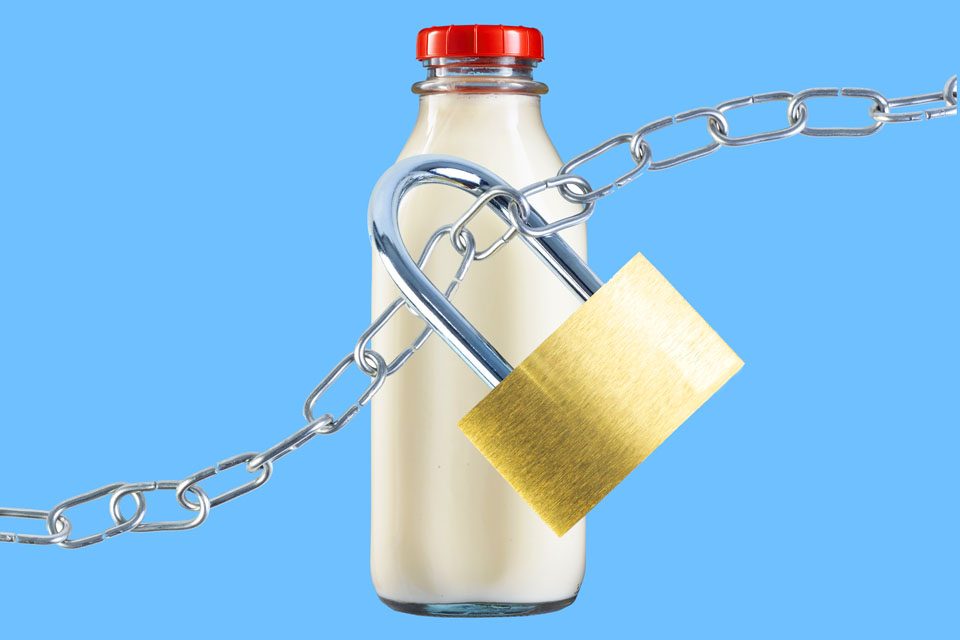Feeling lactose intolerant? A guide to office milk etiquette

“Got milk?” The answer, if you’re reading this in the office or on your commute, is probably “no”. And if “yes”, it will be followed with “but not for much longer”.
We’re all having a good laugh this week at the employee of Doncaster Council, who took the ingrained culture of petty office protectionism to a new height by drilling through the cap and neck of a plastic milk bottle and attaching a padlock to deter thieves. It’s exactly the sort of behaviour one expects from the average council employee, but it caught the world off-guard nonetheless.
Milk, from the moment it is set down in an office environment, is one of those things that falls into the “fair game” category, like biscuits, satsumas, or the intern. If it’s there and unattended, it is liable to be used by anyone who happens upon it.
As I type, I am sipping from a cup of tea garnished with, yep, someone else’s Co-op own-brand dairy goodness. I don’t know who bought it, nor do I care. I took a furtive look around the kitchen and, with the single, fluid movement of a ninja, opened the fridge, removed the pint, unscrewed the cap, added a dash, and replaced the bottle back behind the door in all of 3.4 seconds.
This proves, if nothing else, that there are more Thatcherites out there than many would readily admit. Milk snatching is de rigueur, now. The few drops that it takes to improve a beverage are barely missed – only noted when the whole office has partaken in the sinful business, and the bottle has mysteriously emptied itself.
It can be infuriating, as – inevitably – the person who buys the milk is always the same.
They are, to the team, like the person in a family or flat share who pays for the Netflix subscription: uncomplaining, and like all history’s great heroes and characters, unappreciated in their lifetime.
Few would deny the right of any Englishman to half-inch a few drops of milk for his tea.
But where things cross the line is when people milk the system for bigger projects – a bowl of porridge or cereal in the morning, for instance, or to lace someone’s post-workout protein shake. Or when a Prime Minister goes mad with power and takes it away from a generation of children in a single fell swoop.
It’s at the point when people treat milk as a plentiful and expendable resource, rather than the social glue of the workplace, that the kitchen turns into the bar from A Clockwork Orange.
It isn’t enough that office jargon borders on Nadsat at the best of times, a nightmarish blend of “tolchocks” and “synergy”. When the milk enters this realm, it becomes a weapon, to be denied to the rest of the populace by a milk baron (as in Doncaster), or deployed as a ballistic against an enemy. It’s no wonder that “milkshaking” has spilled out onto the streets.
Milk is meant to preserve harmony. The person who buys it should recognise that when they do so, they are doing so for all. And in turn, everyone else should recognise that person’s noble role in society, as the bearer of 50 per cent of the luxuries the Israelites were prepared to wander around a desert for 40 years seeking.
It’s okay to steal milk. But thou shalt steal it responsibly.